Graduate Students
BA, Politics, UC Santa Cruz (2010)
Interests: Islamic Law, Ethics, Intellectual History, Technology
Mohamed’s primary research interests include Islamic Law and Ethics as they relate to emerging technology. He’s interested in studying how AI furthers, disrupts, or augments knowledge production and communal self-perception, as well as how it challenges existing legal and social norms within the Islamic legal and ethical tradition. Prior to joining the AIS program, Mohamed worked in senior roles in Marketing & Communications, designing and implementing cutting-edge technological solutions to raise millions for startup nonprofits that focus on humanitarian relief and sustainable development.
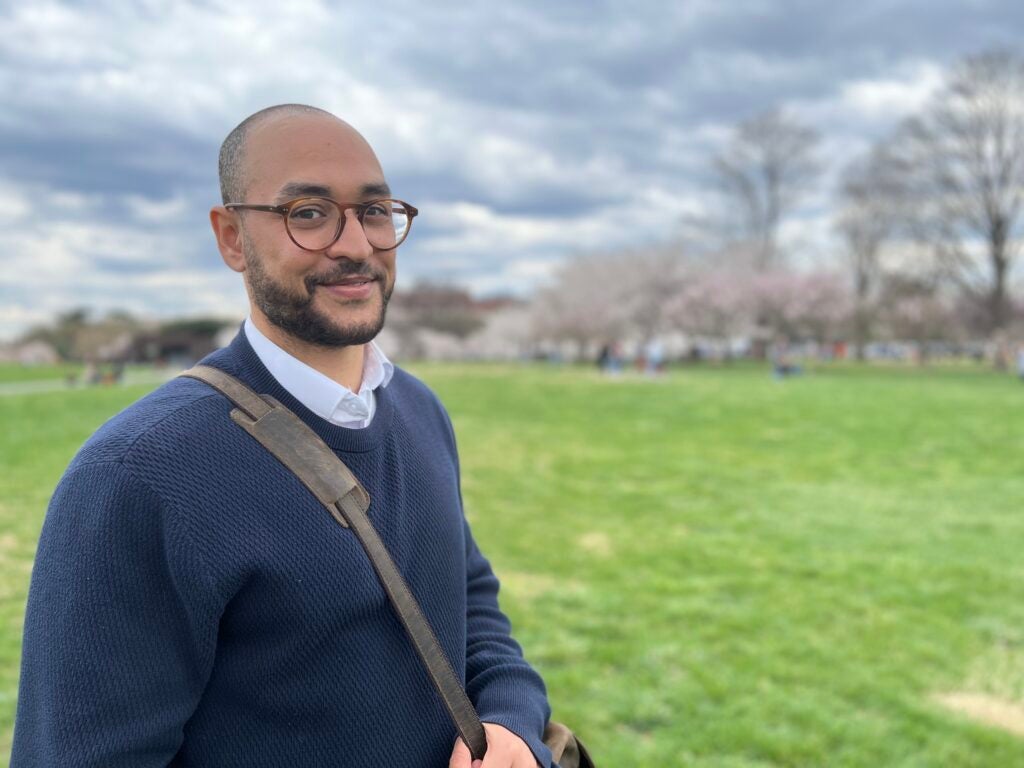
MA (2019) Middle Eastern and North African Studies, The University of Arizona
BA (2012) Languages and Translation from Al-Azhar University, Cairo, Egypt
Muhammad is PhD candidate whose research interests are focused on exploring the cultural, intellectual, and administrative legacy of the Fatimid Caliphate. His research examines the role of Sunni scholars embedded within the sociopolitical apparatus of the Fatimid court. He analyzes how these learned men mediated between ruling elites and the broader public through their writings, advisory roles, and educational activities. Additionally, Muhammad is interested in the scholastic institutions and pedagogical techniques that transmitted knowledge between generations across the Muslim lands during the medieval period. He is also interested in the social and intellectual networks across the Mediterranean. Prior to his doctoral work, Muhammad earned a Master’s degree in Middle Eastern and North African Studies from the University of Arizona, having previously completed his bachelor’s degree at the eminent al-Azhar University in Cairo.
MA (2020) Islamic Texts, Zaytuna College
BA (2013) Sociology, University of Texas at Dallas
BA (2018) Islamic Law & Theology, Zaytuna College
Muaz is interested in the interplay between Islamic theology and Islamic law. He is interested in how theological debates pertaining to God’s wisdom or purposefulness inform debates about the role of certain legal instruments, such as legal analogy (qiyās) or considerations of public interest (maṣlaḥa). He is also interested in understanding the principles governing the determination of certain practices as heretical (uṣūl al-bid’a).
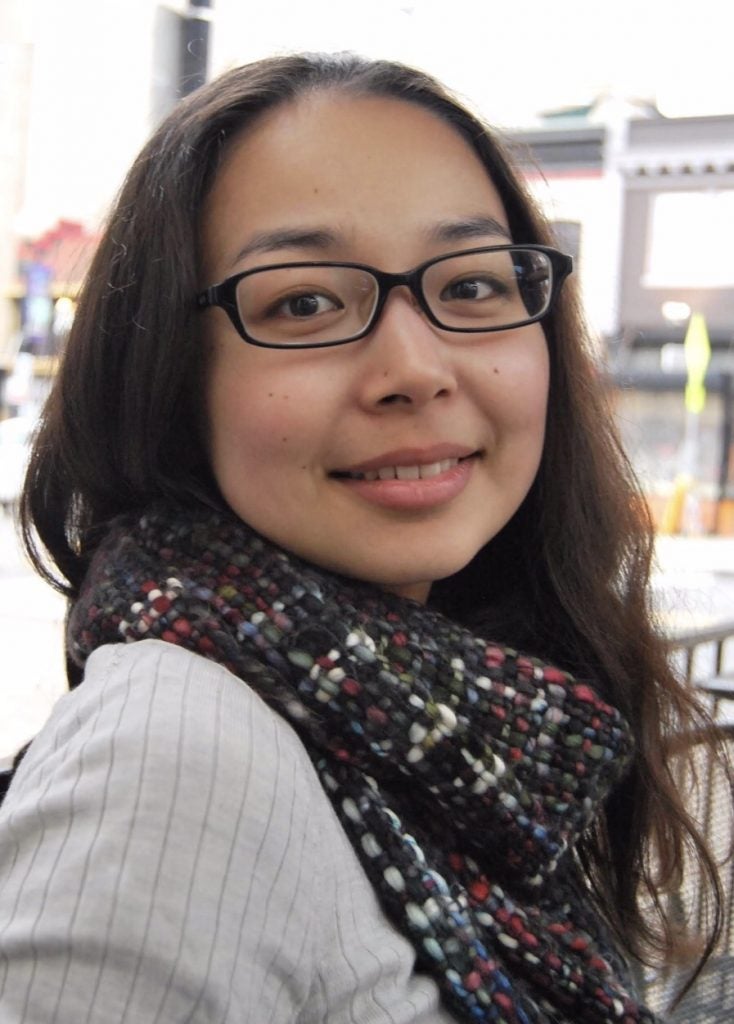
Arabic and Islamic Philosophy
BA (2016), Summa Cum Laude, Philosophy, University of Dayton
The Rev. Charles C. Bloemer, S.M., Award of Excellence in Philosophy (2015)
The Rev. Charles Polichek First Award of Excellence in Philosophy (2016)
Eriko works on Arabic and Islamic philosophy, especially on the transmission and adaptation of Greek knowledge into Arabic. She is currently writing her dissertation on the 10 th -century philosopher Abū Naṣr al-Fārābī’s theory of knowledge. She is a recipient of the Templeton Foundation Doctoral Fellowship for the Theology, Science, and Knowledge project at the Philosophy Department at the University of Missouri, St. Louis for the Academic Year 2020-2021. She has presented her work at various conferences, including annual meetings of the Middle East Studies Association (MESA) and the American Philosophical Association (APA). She also has an interest in manuscript studies.
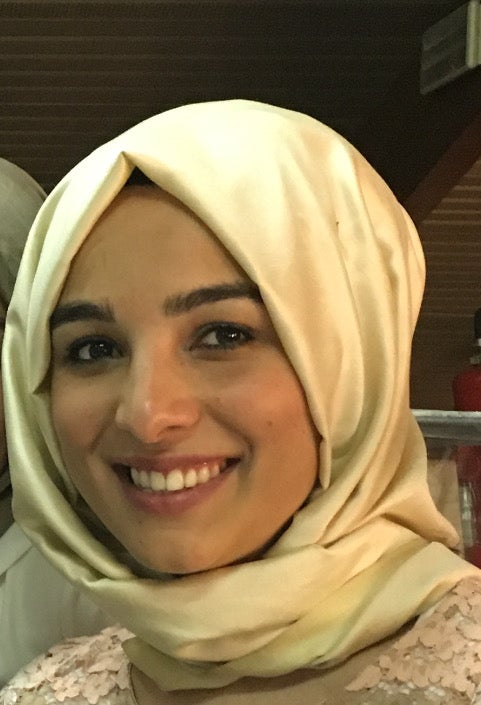
Islamic law
MA (2015), Islamic Studies, Istanbul 29 Mayis University, Turkey
BA (2013), Divinity, Ankara University, Turkey
In her master’s thesis, Shar’u man qablanā in the uṣūl al-fiqh literature of the first five centuries (AH), Hatice surveyed the works of the scholars who studied shar‘u man qablanā, starting with the first printed uṣūl al-fiqh book and ending with some of the sixth-century scholars, such as Al-Ghazālī, Ibn ‘Aqīl and Al-Kalwadhānī. She examined the early scholarly debates on whether shar‘u man qablanā could be referred to as a source of Islamic law.
During her doctoral studies, she would like to study the taxonomy of the sources of law revealed in the uṣūl al-fiqh works of the late Ottoman period, more specifically in the works of Ibn ‘Abidīn. Her areas of interest include the relationship of a legal concept with its social environment, the interaction between scholars of different madhhabs, and the interrelation between religious institutions and politics.
She is a native Turkish and French speaker and studied Arabic at several universities and language institutes in Turkey and Egypt.
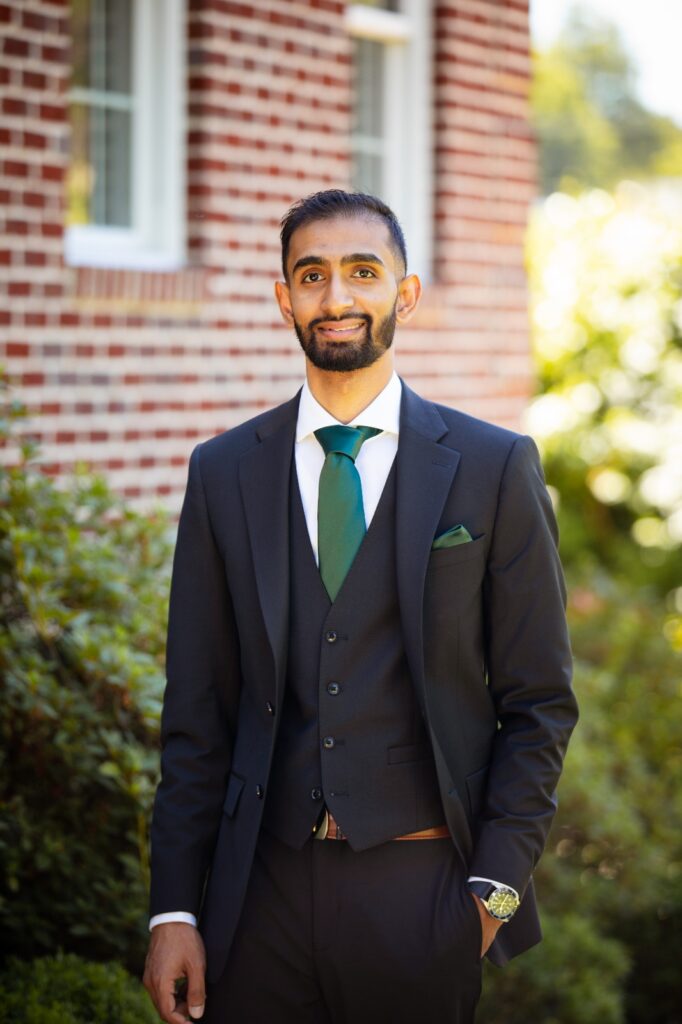
BA (2017), Political Science and Arabic, Summa cum laude with highest honors, Tufts University
Umar Shareef is a doctoral candidate in the Department of Arabic and Islamic Studies. His research combines Foucault’s genealogical method with Talal Asad’s theory of discursive traditions to study the genealogy of the legal concept of ‘restricting the permissible’ (taqyīd al-mubāḥ). In doing so, it traces the interplay between 17th-21st centuries Islamic law and politics by investigating questions of who has the authority to determine religious law. His research has been published in the journals Islamic Law and Society as well as the American Journal of Islam and Society (see his article entitled “Taqyīd al-Mubāḥ and Tobacco: Between Administrative and Legislative Authority”). He has received the CICW Research Grant Award to support his research. He has also received the Spring Conference Travel Award from the Department of Arabic and Islamic Studies to present his research at the BRAIS conference. As a part-time lecturer, he also teaches classes on the Introduction to Islamic Law, Islamic Legal History, and Family Law in Islam.
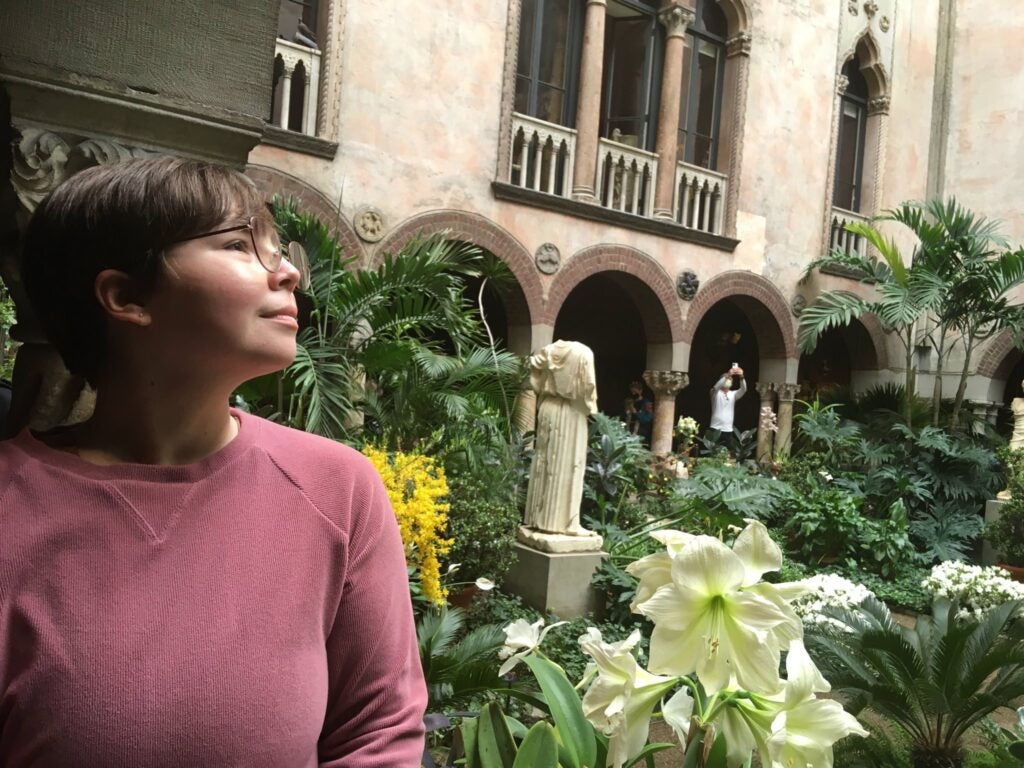
BA Linguistics and Arabic, University of Arizona
Bethany received her BA in Linguistics and Arabic at the University of Arizona. She has also completed intensive language training focusing on MSA, Moroccan Darija, and French. Her primary research interests include sociophonetics, intra- and interpersonal speaker variation, and diglossia in North Africa.

MA (2016) Comparative Literature, University of Toronto
BA (2015) Comparative Literature, Western University
Nina holds a BA in Comparative Literature from Western University and an MA from the Centre for Comparative Literature at the University of Toronto. Her academic research focuses on the period after the 1967 defeat and the ways in which Arab intellectuals and writers contended with its psychological and sociopolitical aftermath. She is chiefly interested in the role of satire as a mode of subversive critique in the Arab world, particularly in response to traumatic historical events since the naksa and leading up to the so-called Arab Spring. In her free time, Nina likes to dabble in poetic translation and stalk any and all cats in her neighborhood.
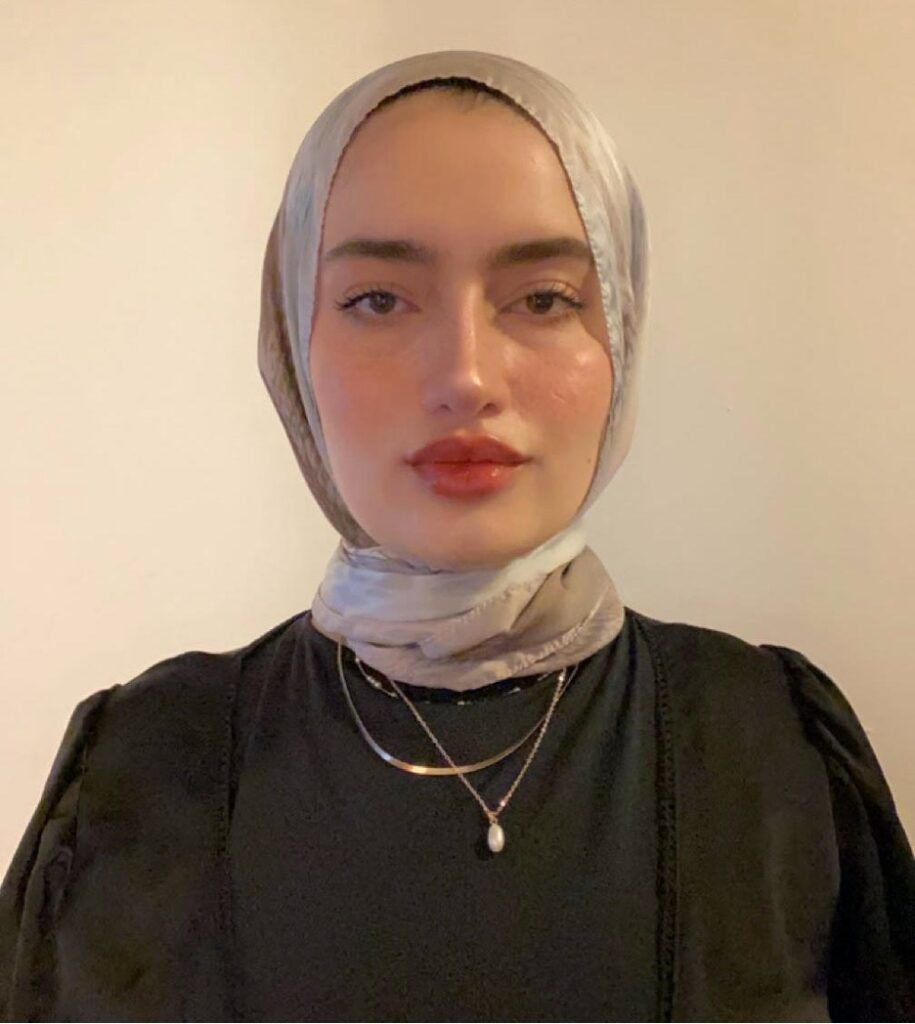
BIELASAN ZAINA
MA (2023), Linguistics, University of Wisconsin – Milwaukee
BA (2020), Linguistics, University of Jordan
Bailasan is a PhD student whose research interests include Arabic linguistics, particularly Arabic syntax. Her main research interests lie in the fields of synchronic and diachronic syntax. With respect to syntactic change, grammaticalization is a topic that particularly interests her. She also seeks to approach Syntax through Computational Linguistics. Zaina’s minor concentration is in Islamic Studies.
In her master’s thesis, Morphosyntactic Structures of Progressive Aspect in the Oral Production of Heritage Najdi Arabic Speakers, Zaina investigated whether the active participle [gaʕid] in the progressive aspect surfaces in the production of Najdi heritage speakers, along with the influence of MSA which does not have this participle, given the fact that those speakers have acquired the relevant variety of Arabic in early childhood along with MSA. Her paper also sought to gain some insight into whether these speakers display differential competencies with regard to the agreement morphology between the subject and the participle [qaʕid]. In addition, it explored the theoretical reasons behind their (a)symmetric competencies as to whether the notion of default-form over-generalization and transfer are at play in those speaker’s heritage acquisition of Najdi Arabic In addition to her academic research interests, Bailasan has worked in legal translation and content writing. She speaks Arabic as her first language, English, and Turkish. She has also obtained a certificate in Python from the University of Michigan.
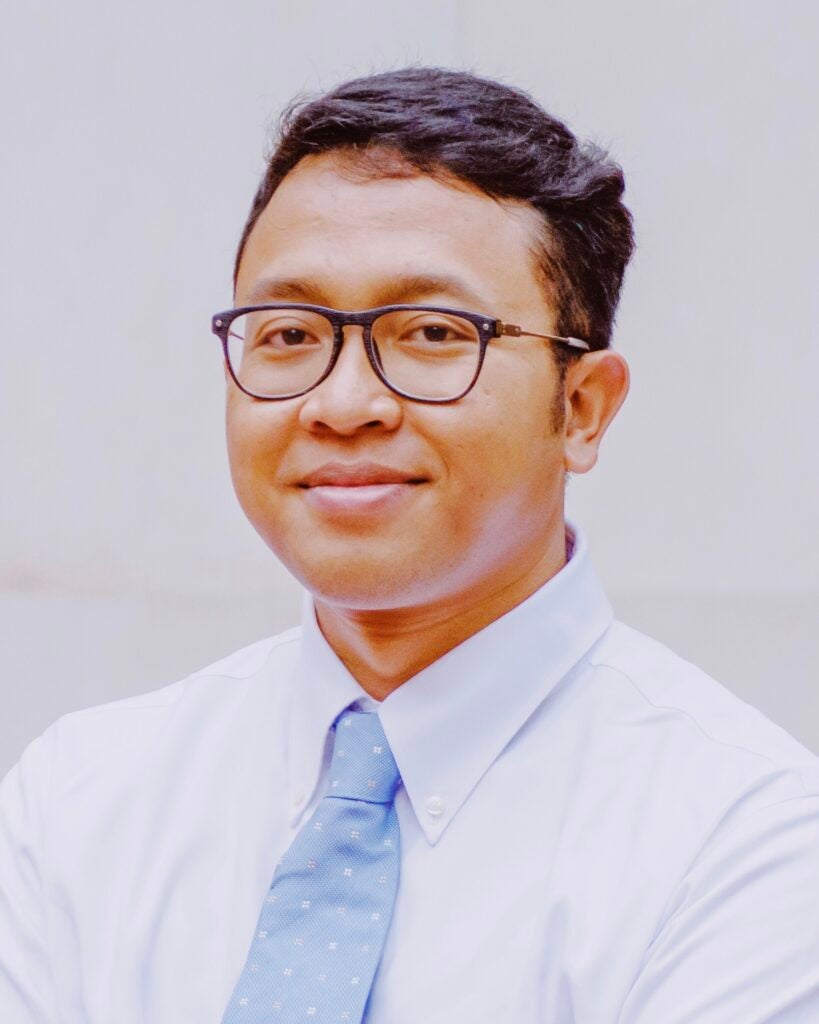
HALIM KHOIRI
BA, Religion and Philosophy, Paramadina University
MA, Islamic Studies, George Washington University
Trained in a Javanese traditional madrasah (pesantren), Halim has a deep interest in the convergence of Sufism with philosophy, theology, law, literature, and the comparative study of religions. He earned his BA in Religion and Philosophy from Paramadina University as a recipient of the prestigious Paramadina Fellowship. He then pursued his MA in Islamic Studies at the George Washington University, fully supported by a scholarship from the Indonesia Endowment Fund for Education. He achieved Magna Cum Laude honors at both institutions.
Following the completion of his master’s program, Halim returned to Indonesia, where he served as a consultant to the special staff of the Minister of Education, Culture, Research, and Technology. He contributed to various projects concerning national education policy, curriculum development, and interfaith dialogue. Later, he joined the Ministry of Religious Affairs, continuing his involvement in similar projects.
Halim is majoring in Islamic Studies with a minor in Arabic Literature. He is currently working on the intellectual history of the philosophical Sufism of Ibn ʿArabi (tasawwuf falsafi) in Southeast Asia from the 15th to the 18th century. His investigations delve into the Islamic intellectual and political connections interlinking Southeast Asia, the Indian Ocean, the Middle East, and South Africa. His primary area of interest lies in manuscripts on philosophical Sufism authored by Nusantaran scholars, including Yusuf al-Maqasiri, Hamzah Fansuri, Shams al-Din al-Sumatrani, ʿAbd al-Raʾuf al-Sinkili, and ʿAbd al-Samad al-Palimbani. In addition to his studies, Halim enjoys listening to Sufi Qawwālī in Urdu and reading Sufi poems in Arabic and Persian.
